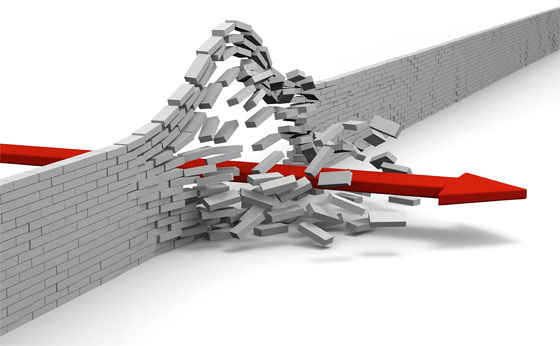Barriers To Situational Awareness

Situational awareness is basically knowing what is going on around us. This concept includes our immediate surroundings as well as what’s going on beyond our visual perimeter. Lets talk about some barriers to situational awareness…
Sometimes there are things (barriers) that cloud our ability to be situationally aware.
Other than some of the obvious barriers such as simply not being observant of our surroundings (for whatever the reason), there are other deeper rooted barriers to fully seeing or understanding what’s really going on.
Perception Barrier
A Situational Awareness barrier can be our own ‘perception’ which might be based on faulty or flawed information. Perception is our own mental picture of reality. Perception can be (and often is) manipulated, and our mental picture may not always be aligned with reality or truth. We should be aware of that (perception influence) and be skeptical while using our own critical-thinking about any given situation.
Our mental picture is affected by:
Past Experiences: We act on information based on our knowledge. When something looks similar to what we are familiar with, we may react as if it were the same as before (whereas it may be different this time).
Expectations: We often interpret information in such a way that it affirms our beliefs. We might rationalize that something is so, because we want it to be so (whereas it really might not be).
Filters: We are provided with information, but we don’t always use it. We don’t always pay attention to information that doesn’t match our mental picture or our expectations. In other words, we sometimes only hear what we want to hear.
Be aware of your own biases.
Excessive Motivation
Sometimes being overly or excessively motivated will affect our ability to fully assess the situation due to our exuberance. We might miss certain risks and overlook safety, for example. An overriding sense of mission importance could jeopardize critical thinking and good judgement.
Complacency Barrier
Assuming that everything is under control, affects our vigilance. We slack off. When things are slow, tasks are routine and situational awareness can become low. During these times, it’s good to challenge ourselves (e.g. planning or training) which can deter complacency.
Overload
Overload causes distraction, fixation, increased errors, and high stress. Prioritizing and delegating tasks and minimizing distractions can improve efficiency and safety.
Fatigue
Fatigue affects vigilance. Adjust your routine and take time to unwind away from environments that require your full situational awareness, and be sure you’re getting enough sleep.
Poor Communications
If working with a team, the level of situational awareness achieved is related to the level and quality of communications within the team. Working together and communicating efficiently will result in a sharper awareness overall.
Situational awareness is so very important (what we observe, how we interpret it, and how we act based on that awareness). Keeping an open mind and getting beyond the barriers is not always easy. Thinking beyond our normalcy bias does not come natural. It requires discipline. Challenge yourself and why you feel the way you do about a situation – especially before making an important decision. Understand the situation…
[ Read: 360 Situational Awareness ]
